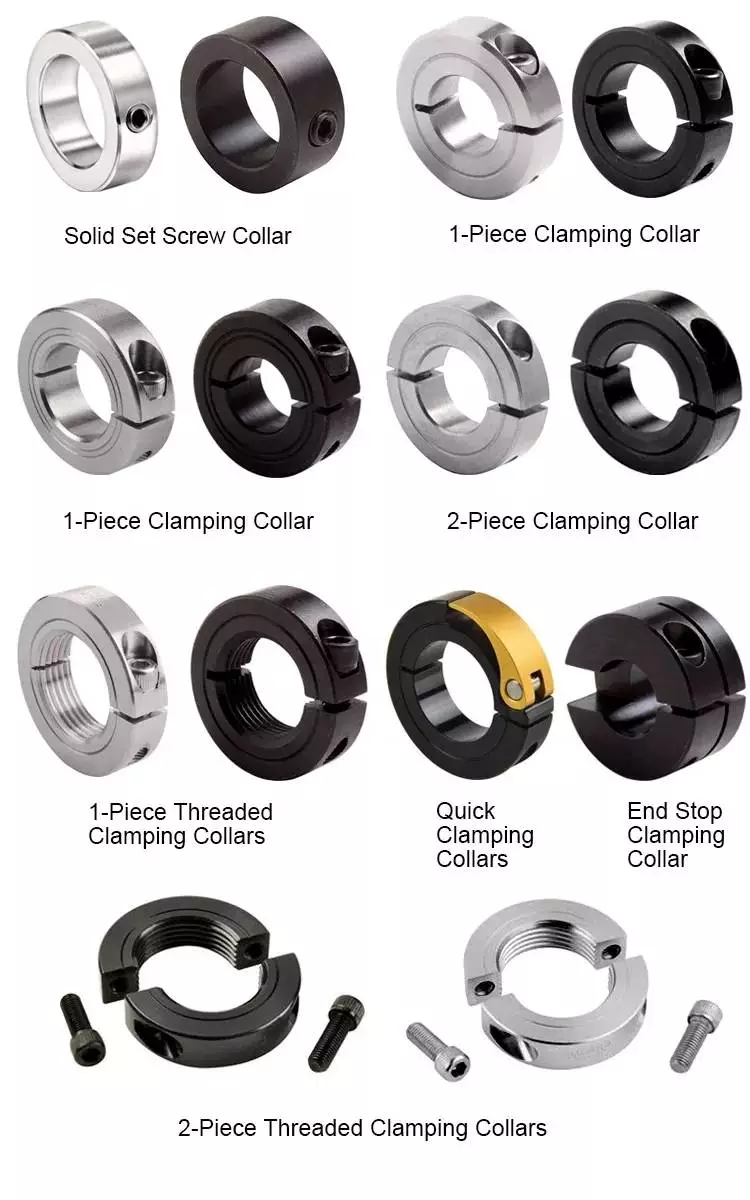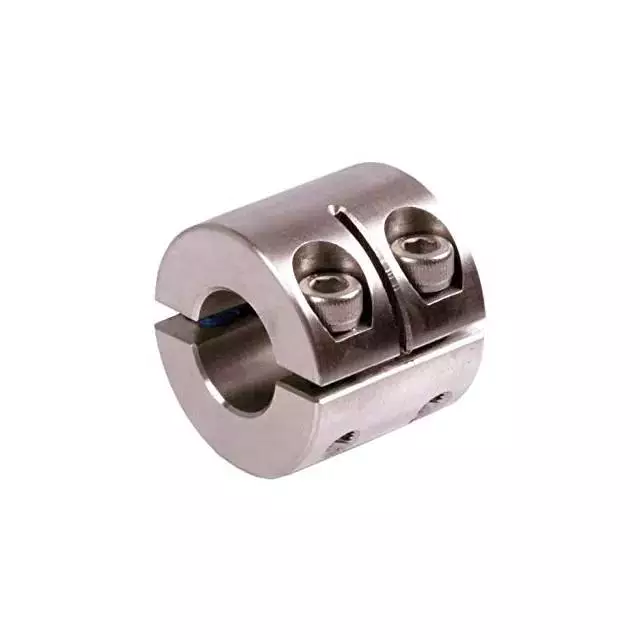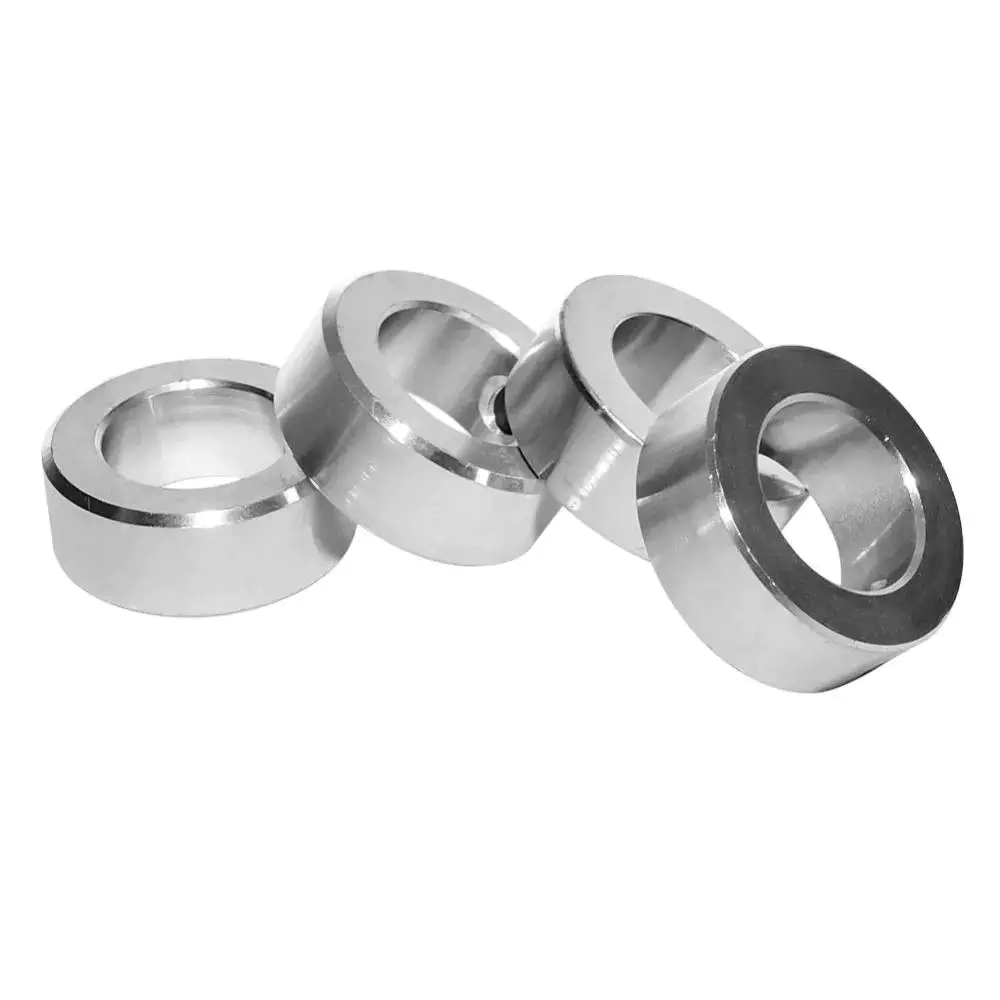
Can I purchase shaft collars with specific certifications for certain industries?
Yes, it is possible to purchase shaft collars with specific certifications for certain industries. Certifications ensure that the shaft collars meet specific standards, requirements, or regulations established for particular industries or applications. Here are some important points to consider when purchasing shaft collars with specific certifications:
- Industry-Specific Certifications: Different industries may have specific certifications or standards that shaft collars need to meet to ensure compliance with safety, performance, or regulatory requirements. For example, industries such as automotive, aerospace, food processing, medical, or oil and gas may require shaft collars that meet certifications such as ISO 9001 (quality management system), ISO 14001 (environmental management system), AS9100 (aerospace quality management system), or FDA (Food and Drug Administration) compliance. Identify the specific certifications relevant to your industry and application.
- Manufacturer Certifications: Some manufacturers specialize in producing shaft collars that are certified for specific industries or applications. They may have their own certifications or comply with industry-specific standards. When purchasing shaft collars, look for manufacturers who have the necessary certifications and a track record of producing compliant products. Their certifications should be prominently displayed on their website, product documentation, or available upon request.
- Product Documentation and Specifications: Shaft collar manufacturers often provide product documentation, specifications, or datasheets that outline the certifications and standards their products comply with. These documents may include information about industry-specific certifications, material certifications (such as RoHS compliance for restricted substances), or performance ratings. Review the product documentation carefully to ensure the shaft collars meet the necessary certifications for your industry or application.
- Supplier Verification: If you are purchasing shaft collars from a supplier or distributor, verify that they source their products from reputable manufacturers who adhere to industry-specific certifications. Request documentation or certifications from the supplier to confirm compliance. It is essential to ensure that the entire supply chain, from the manufacturer to the supplier, maintains the necessary certifications required for your industry.
- Consultation with Industry Experts: If you have specific certification requirements for your industry or application and are unsure about the available options, it is advisable to consult with industry experts or engineers specializing in that field. They can provide guidance on the certifications needed and recommend suitable shaft collar manufacturers or suppliers who can meet those requirements.
When purchasing shaft collars with specific certifications, it is important to verify the authenticity and validity of the certifications. Look for reputable manufacturers, suppliers, or distributors who have a proven track record of delivering certified products and maintaining compliance with industry standards. The certifications provide assurance that the shaft collars meet the necessary quality and safety standards for your industry or application.

Where can I find information on the materials used in manufacturing shaft collars?
If you are looking for information on the materials used in manufacturing shaft collars, there are several sources where you can find relevant information. Here are some common resources to consider:
- Manufacturer Websites: Many manufacturers of shaft collars provide detailed information about the materials they use in their product specifications or technical datasheets. Visiting the websites of specific collar manufacturers and exploring their product documentation or resources section can help you find information about the materials used in their collars. This information may include the type of material (such as steel, stainless steel, aluminum, or plastic) and any specific properties or characteristics associated with the material.
- Product Catalogs and Brochures: Manufacturers often publish product catalogs or brochures that provide an overview of their collar offerings. These catalogs may include information about the materials used in manufacturing the collars. You can request catalogs from manufacturers directly or check their websites for downloadable versions. The catalogs may highlight the material properties and advantages of using specific materials for different applications.
- Material Databases: Online material databases or directories can be valuable resources for finding information about specific materials used in manufacturing shaft collars. These databases typically provide comprehensive information about various materials, including their composition, mechanical properties, corrosion resistance, temperature tolerance, and other relevant characteristics. Examples of such databases include MatWeb, Engineering Toolbox, or specialized materials databases maintained by industry organizations or universities.
- Technical Standards and Specifications: Technical standards and specifications related to mechanical components can often include information about the materials used in their construction. Standards organizations or industry associations may release documents that outline the material requirements for shaft collars or provide guidelines for material selection. Accessing these standards or specifications can provide insights into the recommended materials for shaft collar manufacturing.
- Consulting with Manufacturers or Suppliers: If you have specific questions about the materials used in manufacturing shaft collars, reaching out directly to manufacturers or suppliers can be beneficial. They can provide detailed information about the materials they use, including their composition, properties, and any specific treatments or coatings applied to enhance performance. Contacting manufacturers or suppliers allows for direct communication and the opportunity to address any specific concerns or requirements you may have.
When seeking information on materials used in shaft collar manufacturing, it is important to consider factors such as desired properties (e.g., strength, corrosion resistance), environmental compatibility, and application-specific requirements. This will help you make informed decisions about selecting shaft collars that are suitable for your specific needs and operating conditions.

Are there tutorials on the proper installation of shaft collars?
Yes, there are tutorials available that provide guidance on the proper installation of shaft collars. These tutorials can be helpful for individuals who are unfamiliar with the installation process or want to ensure that they are installing the collars correctly. Here are some common sources where you can find tutorials on the installation of shaft collars:
- Manufacturer Websites: Many manufacturers of shaft collars provide detailed installation instructions on their websites. These instructions may include step-by-step guides, diagrams, or videos that demonstrate the proper installation techniques. Visiting the websites of specific collar manufacturers and exploring their resources section or product documentation can help you find the installation tutorials you need.
- Online Industrial Communities and Forums: Industrial communities and forums dedicated to mechanical components or equipment often have discussions or threads related to the installation of shaft collars. Participating in these communities and posting inquiries about installation techniques can help you connect with professionals or experienced users who can provide guidance or share their knowledge.
- Video Sharing Platforms: Platforms like YouTube or Vimeo host a wide range of instructional videos, including tutorials on the installation of various mechanical components. Searching for “shaft collar installation tutorial” or similar keywords on these platforms can yield helpful videos that visually demonstrate the proper installation techniques. Watching these videos can provide a clear understanding of the installation process and any specific considerations to keep in mind.
- Trade Publications and Magazines: Trade publications or magazines related to mechanical engineering, industrial equipment, or power transmission may feature articles or guides on the installation of shaft collars. These resources often provide detailed explanations, tips, and best practices for proper installation. Checking these publications or their online platforms can give you access to written tutorials or expert insights.
- Online Documentation and Manuals: Some manufacturers or suppliers provide downloadable documentation or manuals for their shaft collars. These documents may include installation instructions along with other technical information. Searching for the specific collar model or brand, followed by keywords like “installation instructions” or “user manual,” can help you find relevant documentation that covers the installation process.
When using tutorials for shaft collar installation, it is important to ensure that the information is sourced from reputable and reliable sources. Follow the provided instructions carefully, and if in doubt, consult with professionals or seek guidance from the manufacturer. Proper installation of shaft collars is crucial for their effectiveness, reliability, and the overall performance of the machinery.


editor by CX 2023-11-09